Big Red Book
Celebrating television's This Is Your Life
Group Captain Leonard CHESHIRE VC, DSO, DFC (1917-1992)
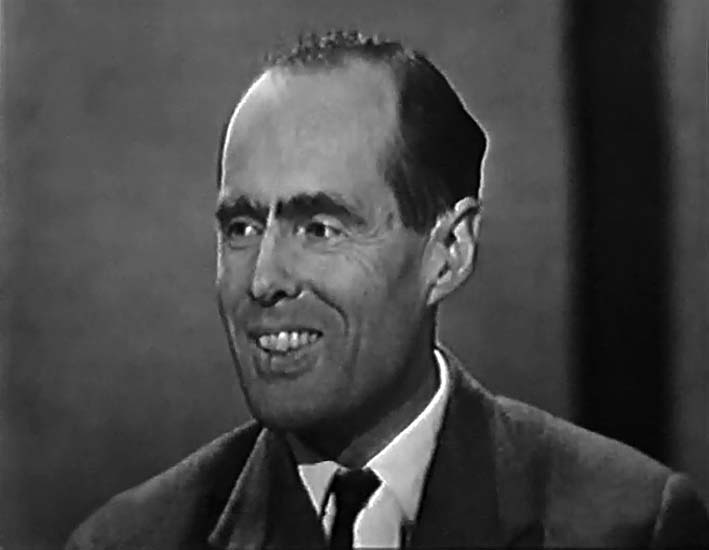
THIS IS YOUR LIFE - Leonard Cheshire, charity founder and former RAF pilot, was surprised by Eamonn Andrews as he left a meeting in Vincent Square, London.
Leonard, who was born in Chester but raised in Oxford, was educated at Stowe School and Merton College, Oxford. During the Second World War, he served with the RAF, almost without interruption in Bomber Command, including taking control of 617 Squadron - the Dambusters - in 1943. His record of 100 operational bombing missions was unequalled, and he was the youngest Group Captain in the service and, following his Victoria Cross for gallantry, the most decorated.
After the war, and aware of the growing need to house disabled veterans with nowhere to live, Leonard set up a residential home in Hampshire. Following a problematic start, the scheme succeeded, with more homes opened nationwide and abroad and a charity established in his name to support people with disabilities in living, learning, and working independently.
"I had made it known I would have nothing to do with it if it ever came up, but I much enjoyed the programme... I kept looking at the curtain and hoping someone from India would walk through..."
programme details...
- Edition No: 130
- Subject No: 130
- Broadcast live: Mon 19 Sep 1960
- Broadcast time: 7.30-8.00pm
- Venue: BBC Television Theatre
- Series: 6
- Edition: 1
on the guest list...
- Gp Capt Christopher Foxley-Norris
- Air Cdre Charles Whitworth
- George Roberts
- Laurence Scott
- Gp Capt Harold 'Mick' Martin
- Lucian Paris
- Anne Hidden
- Frances Jeram
- Sue Ryder - wife Filmed tribute:
- Sir Ralph Cochrane
related appearance...
- Michael and Kevin Doheny - Nov 1984
production team...
- Researcher: Shirley Macnab
- Writer: Peter Moore
- Director: Michael Goodwin
- Producer: T Leslie Jackson
- names above in bold indicate subjects of This Is Your Life
- with thanks to Jill Roberts, archivist at Leonard Cheshire Disability, for her contribution to this page
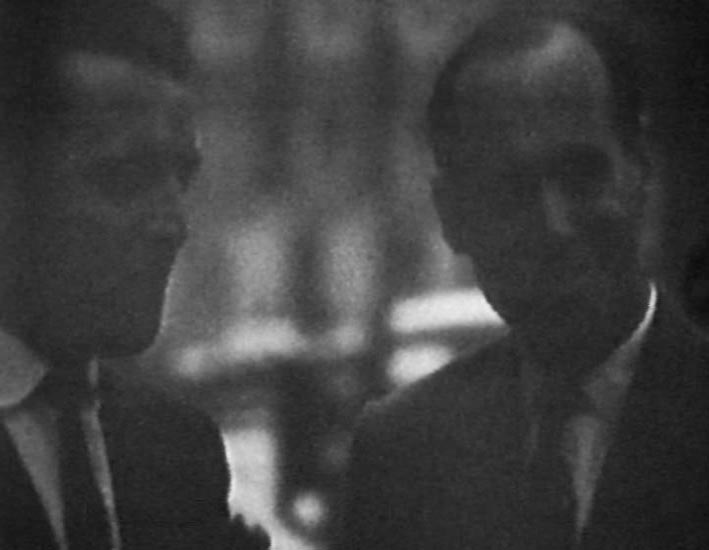
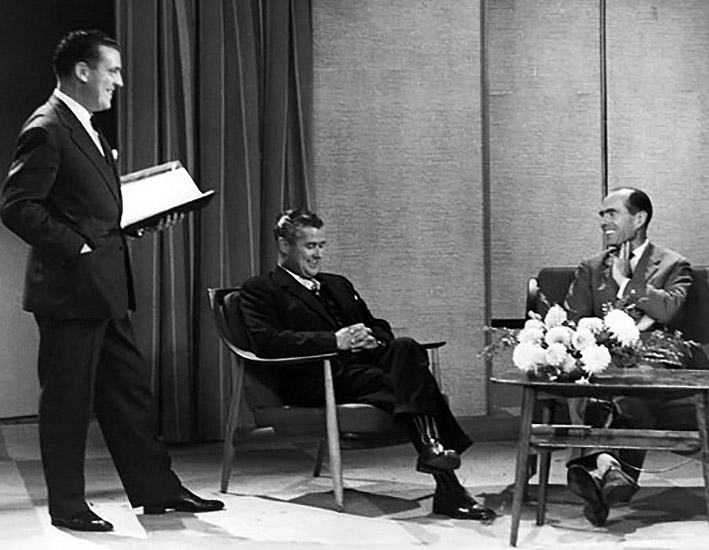
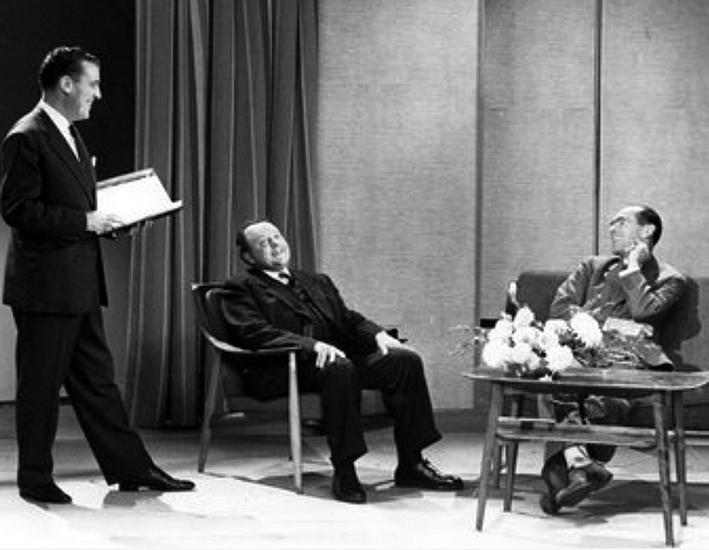
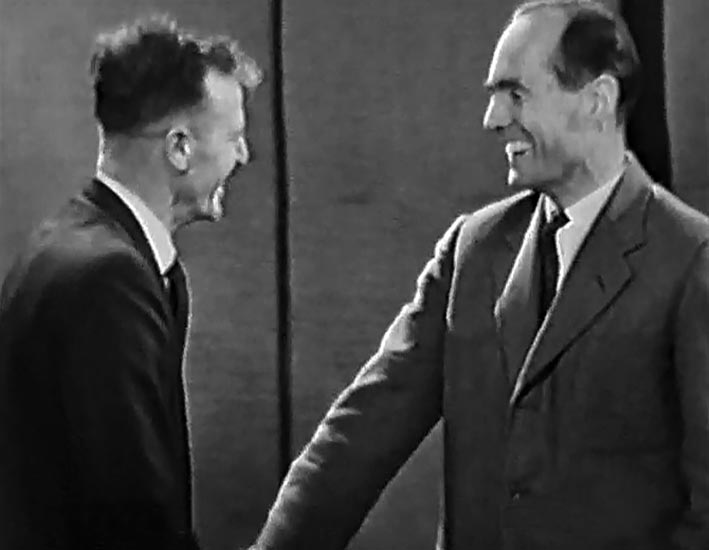
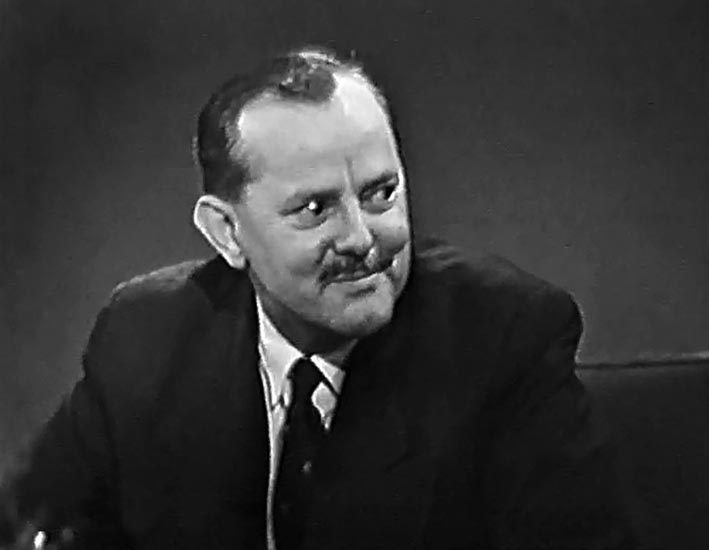
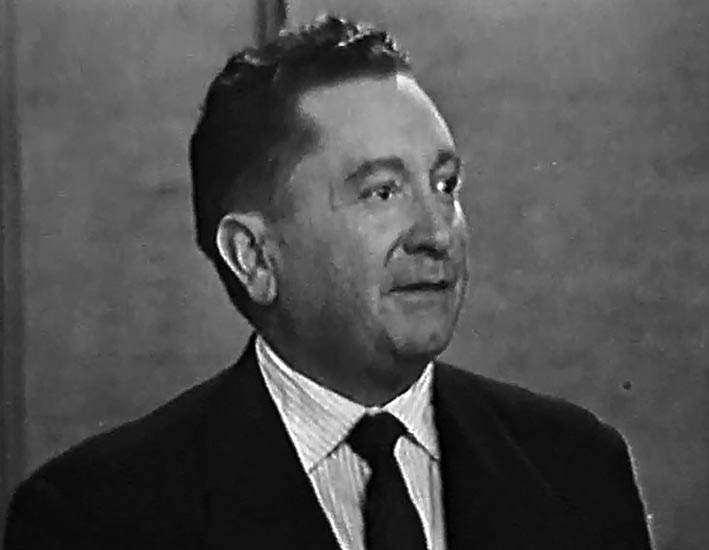
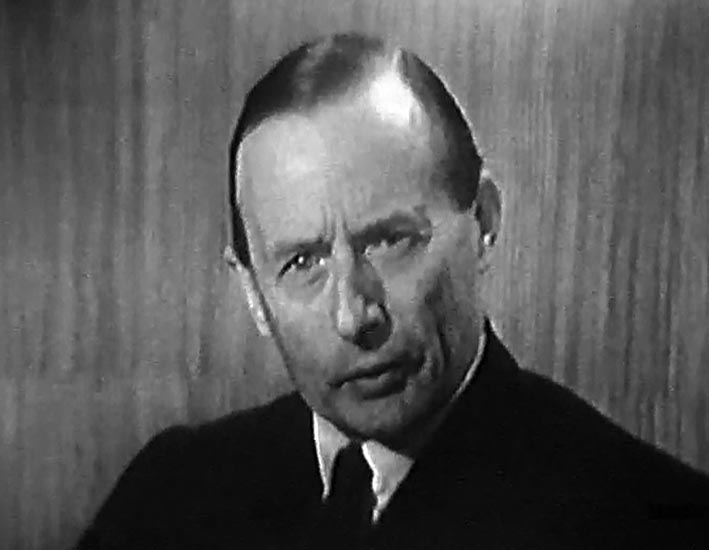
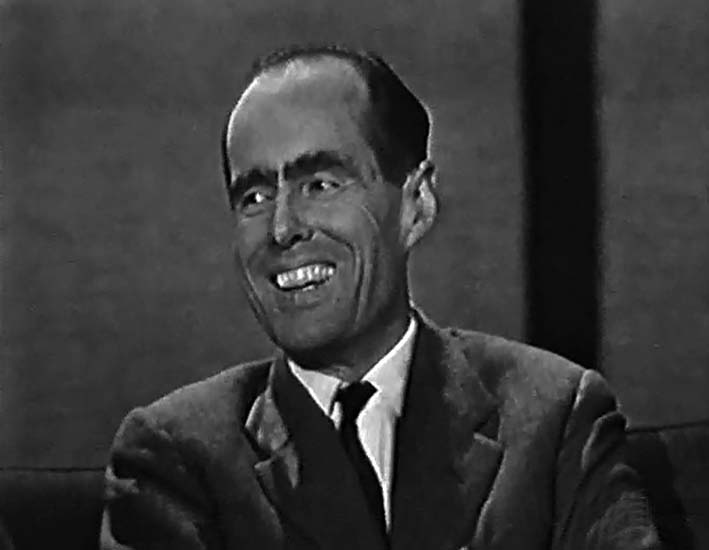
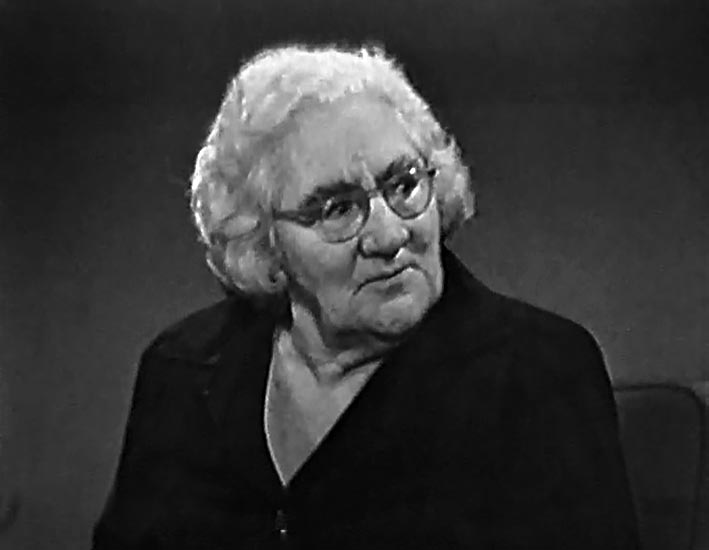
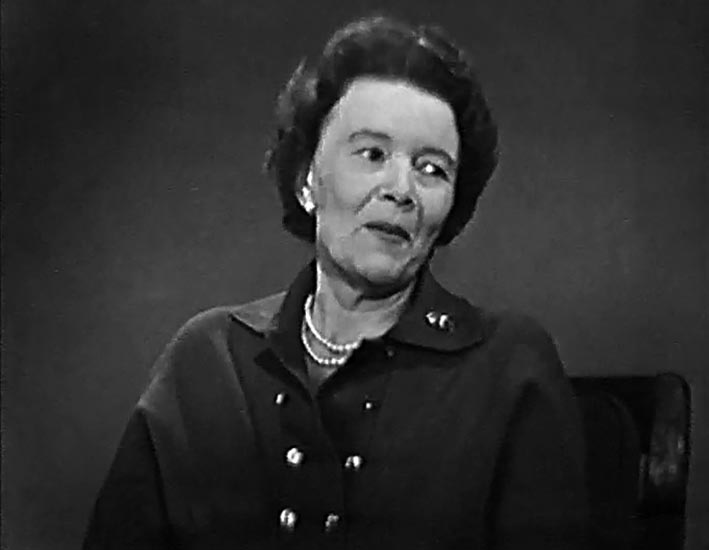
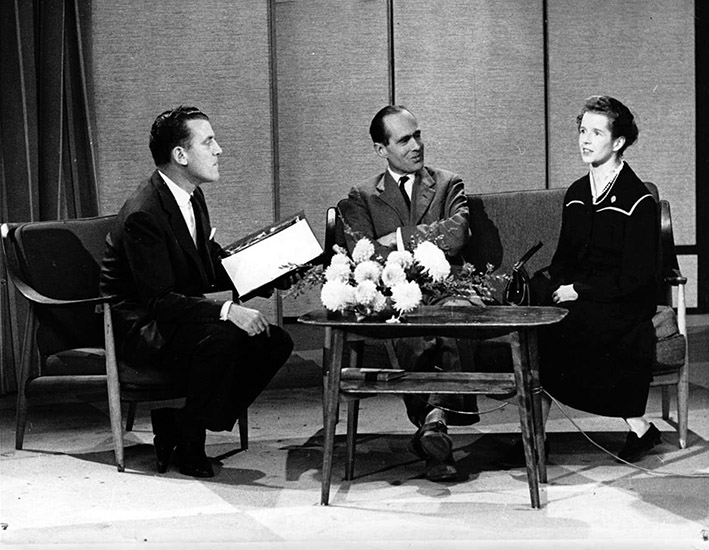
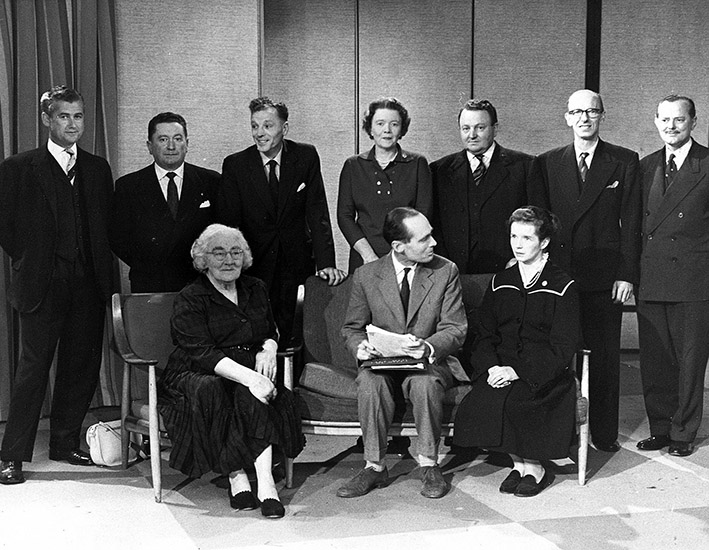
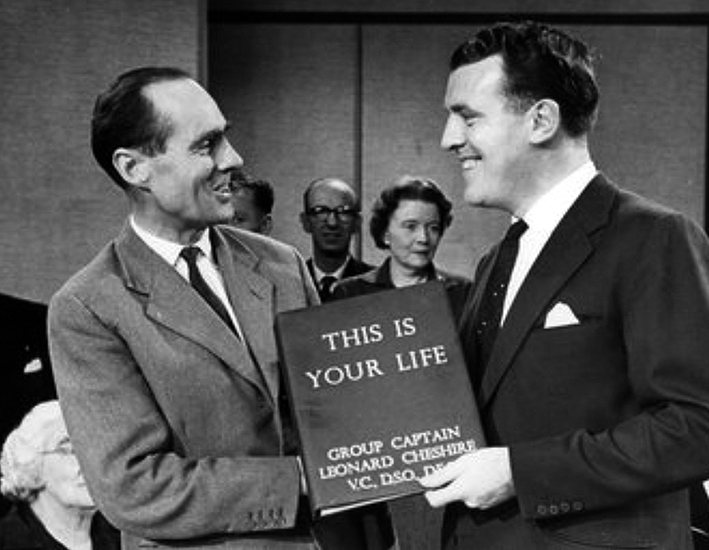
Photographs and screenshots of Leonard Cheshire This Is Your Life

...a few years later Group Captain Leonard Cheshire would be the subject of This Is Your Life. Leslie Jackson counts the show as among the most exciting he has produced. 'For one thing,' he recalls, 'I think that Eamonn wasn't at all sure that he would accept the book.'
Today Leonard Cheshire confirms this. As he says, 'When I found Eamonn looming over me, with a broad smile on his face and a camera somewhere behind him, I agreed to go on the programme, but at that moment he seemed to think that I would not, for he enquired rather anxiously whether I really meant what I said, and continued to appear slightly ill at ease in the car as we drove to his home. We sat there for an hour or so, before going on to the studio.'
For a number of years he had no intention of going on the Life show if approached by Eamonn. His wife, Susan Ryder had complained about pressure on her family when her own story was being done, and despite her affection for Eamonn Andrews she advised against going on the show. 'As a result,' recalls Leonard Cheshire, 'I told my mother and father this, and asked them to have nothing to do with it, should they ever be approached. However, a week or two before my Life story, Sue casually said to me, "If Eamonn Andrews ever does ask you, though I doubt he will, perhaps it would be better to accept, for the sake of the work."'
At the time they had approximately twelve Cheshire Homes in England, six in India, one in Singapore, Tangier, Bethlehem and Sierra Leone. In addition, there was their first joint project, Ryder-Cheshire at 'Raphael', Northern India. As in the case of the Sue Ryder Foundation, Eamonn was interested in the work of the Cheshire Homes and was anxious to help in any way possible. He planned to surprise Leonard Cheshire in Vincent Square, London, where he had an appointment to see Duncan Guthrie in his offices.
'Duncan was in charge of a major charity for the handicapped and I had high hopes that he would give me some money for a special project that I had in India,' remembered Group Captain Cheshire. 'My wife came with me and, not long after we had sat down, began to make signs, greatly to my surprise, that it was time to go. I objected quite strenuously, saying that we had not yet got down to the business on hand, but Duncan also indicated that it was time to stop; and, two or three minutes later, he stood up and said that he must go. Outside in the street, Eamonn was waiting.'
Now, as he sat with Eamonn in his home he found him very caring and anxious to put him at ease. He had met him once before, in 1950, when he came to open the first garden fete he ever held at his first Cheshire Home, Le Court. Their paths would cross from time to time later on, and they exchanged cards at Christmas.
He was to find his own Life programme a memorable experience.
'How could it be otherwise, with so many different people coming out of the wings to bring back personal memories of days gone by? I was greeted by Mick Martin, of Dambuster fame, and others from my RAF days as well as from the Homes. One particular memory is of somebody from Limoges. We, the Dambusters, were given as our target the Gnome-Rhone aero-engine factory on the outskirts of the city on which to demonstrate our newly-developed, high-level, precision-bombing technique, using 10,000 pound bombs dropped from 16,000 feet.
But we had instructions from the War Cabinet not to destroy surrounding property, nor to cause any civilian casualties. There was a night-shift of 500 at the time we attacked but, by doing three very low-level runs over the factory, and then waiting five minutes, we warned them to get out, so that one bomb dropped outside the factory, and there were no casualties. This, I believe, is still remembered in Limoges today, and a representative came over at Eamonn's invitation, really just to say thank you on the show. It was probably for me the most moving moment of all that evening – and the most unexpected.'
In retrospect, he was glad that he had agreed to accept the large book from Eamonn, although he reckoned his parents were a little puzzled by his change of mind.
It struck Group Captain Cheshire that Eamonn was interested, where possible, to project the good side of life on his programmes, in particular worthy causes. In this respect, he thought that This Is Your Life could be very meaningful. He was happy also to make the friendship of Eamonn Andrews.
Series 6 subjects
Leonard Cheshire | George Bennett | David Sheppard | Sybil Thorndike | Clarence Wolfe | Charles Coward | T E B ClarkeHelene Jeanty-Raven | Cyril Smith | Victor de Spiganovicz | Arthur Hartley | Ellen Field | Anthony Deane-Drummond
John Mills | Richard Bancroft | Freddie Mills | William Simpson | Alan Herbert | Madame Vacani | Elizabeth Ambridge | Robert Fawcus
Flora Robson | Edward Chad Varah | James Zarb | Maryan Rawicz and Walter Landauer | James Chipperfield | Anthony Kimmins
Thomas Cosmo Jones | Jessie Matthews | Helen Wilson | Charlie Chester | Brunel Cohen | Godfrey Winn | Billy Wright